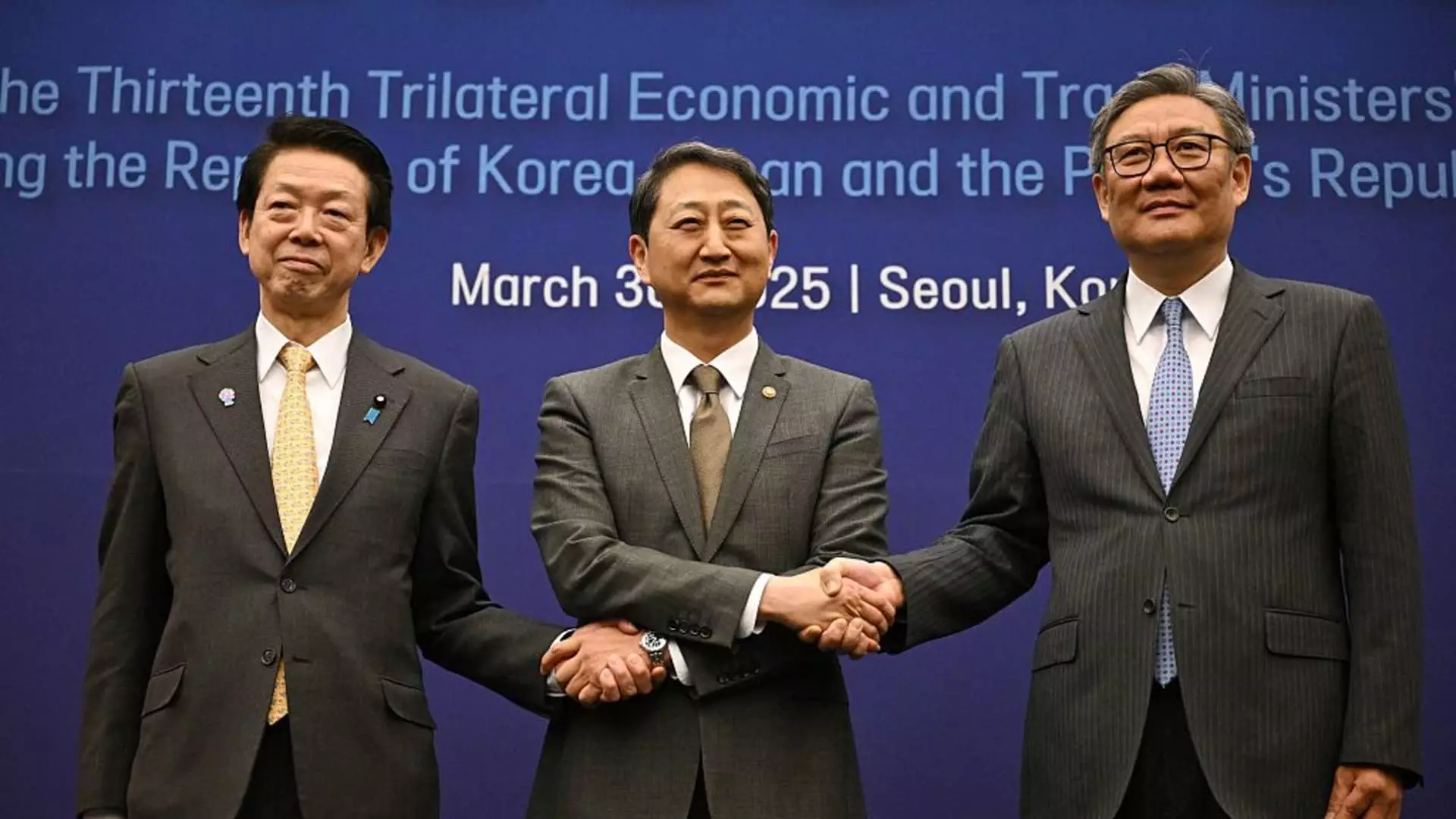In a world where economic alliances shape geopolitical landscapes, the recent dialogue between South Korea, China, and Japan signals a much-needed revival in regional cooperation. After a five-year hiatus, these three Asian titans convened on Sunday with the intention of reinvigorating trade amidst external pressures, particularly from U.S. tariffs introduced by former President Donald Trump. This gathering reflects not just a dialogue of convenience, but an urgent recognition of the necessity to bolster collaborative economic strategies among nations that have, for far too long, been entwined in a web of historical conflicts and competitive rivalries.
Facing External Challenges Head-On
U.S. tariffs have thrown a wrench into the gears of international trade, but rather than succumb to economic isolation, South Korea, China, and Japan appear to be rallying together to forge a path of resilience. There is a certain irony in the dynamics of globalization: as the United States erects barriers, the Asian economic powerhouses seem to find an opportunity for unity. This triadic approach is not merely about outperforming external adversities but fostering a cohesive framework for the future of trade in the region. The invocation of the Regional Comprehensive Economic Partnership (RCEP) as a cornerstone for strengthening cooperation underscores a critical shift toward collaborative interdependence rather than competitive isolation.
Pushing Past Historical Barriers
Nevertheless, the journey toward enhanced economic collaboration is fraught with obstacles, many of which stem from age-old tensions. Territorial disputes and nationalistic sentiments have historically hindered the potential for a cohesive free trade agreement. The recent issues surrounding Japan’s decision to release wastewater from the Fukushima nuclear disaster exemplify the challenges that extend beyond mere economics into sensitive historical grievances. For this economic dialogue to transcend the limitations of past enmities, a sincere commitment from all parties is paramount—one that prioritizes mutual benefit over nationalistic posturing.
A Call for Innovative Solutions
The upcoming ministerial meeting slated for Japan presents an opportunity for deeper discussions on how to navigate these contentious waters. Leaders must come equipped with innovative solutions, recognizing that the old narratives of rivalry can no longer serve their citizens in a fast-evolving global economy. The potential creation of a comprehensive Japan-South Korea-China free trade agreement could herald a new economic paradigm, one that champions collaborative prosperity over discord. If the three nations can establish a united front despite their differences, they stand to transform regional trade into a vital engine for growth that could rival even the most robust global economic alliances.
Charting a New Course
The time is ripe for these nations to set aside their discord and take actionable steps toward a significant economic alliance. As the specter of protectionism looms large globally, South Korea, China, and Japan bear the responsibility of leading a counter-narrative—asserting that regional cooperation is not only feasible but essential. Embracing shared economic interests may pave the way for a transformative relationship that not only mitigates external pressures but also propels all three countries toward an era of unprecedented economic prosperity. It is through diligence, innovation, and shared vision that these nations can ultimately redefine their role in the global economic landscape.


Leave a Reply